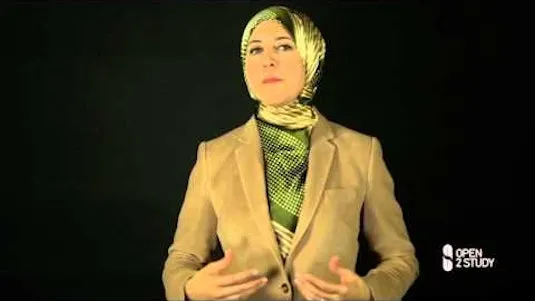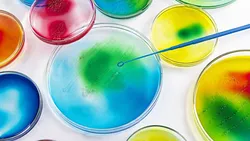
How to Pass Your Microbiology Lab (Practical Skills) 
This course provides students with the practical skills needed to pass their Microbiology Lab. It covers topics such as stains and biochemical tests, and is tailored to AP Biology, MCAT, and NEET students. The videos provide step-by-step instructions on how to apply these skills in the lab. ▼
ADVERTISEMENT
Course Feature
![]() Cost:
Cost:
Free
![]() Provider:
Provider:
Youtube
![]() Certificate:
Certificate:
Paid Certification
![]() Language:
Language:
English
![]() Start Date:
Start Date:
On-Demand
Course Overview
❗The content presented here is sourced directly from Youtube platform. For comprehensive course details, including enrollment information, simply click on the 'Go to class' link on our website.
Updated in [February 21st, 2023]
What does this course tell?
(Please note that the following overview content is from the original platform)
This playlist includes videos for AP Biology, MCAT, and NEET students, particularly for practical applications of lab skills, including stains and biochemical tests.
We consider the value of this course from multiple aspects, and finally summarize it for you from three aspects: personal skills, career development, and further study:
(Kindly be aware that our content is optimized by AI tools while also undergoing moderation carefully from our editorial staff.)
This course provides an overview of the practical skills needed to pass a microbiology lab exam. It covers topics such as stains and biochemical tests, as well as tips and tricks for success. The course is designed for AP Biology, MCAT, and NEET students, and is suitable for both beginners and experienced learners.
[Why Learn]
Learning the practical skills needed to pass a microbiology lab exam is essential for any student studying biology. It is a great way to gain a deeper understanding of the subject, as well as to develop the skills needed to succeed in the lab. This course provides an overview of the topics and techniques needed to pass the exam, as well as tips and tricks for success.
[Development Paths]
This course provides a comprehensive overview of the practical skills needed to pass a microbiology lab exam. It covers topics such as stains and biochemical tests, as well as tips and tricks for success. After completing this course, learners can move on to more advanced topics such as molecular biology, immunology, and biochemistry.
In addition to this course, learners can also benefit from related courses such as Introduction to Microbiology, Microbiology Lab Techniques, and Microbiology Lab Safety. These courses provide a more in-depth look at the topics covered in this course, as well as additional tips and tricks for success.
[Applications]
After taking this course, students can apply the practical skills they have learned to their studies. They can use the stains and biochemical tests to identify microorganisms and understand their characteristics. Additionally, they can use the knowledge gained to better prepare for AP Biology, MCAT, and NEET exams. Finally, they can use the skills to further their research in the field of microbiology.
[Career Paths]
1. Microbiologist: Microbiologists study microorganisms such as bacteria, viruses, fungi, and protozoa. They use a variety of techniques, such as microscopy, genetic engineering, and biochemistry, to identify, classify, and analyze microorganisms. Microbiologists are also involved in developing new treatments and vaccines for diseases caused by microorganisms. The demand for microbiologists is expected to grow in the coming years due to the increasing need for research and development in the field of biotechnology.
2. Clinical Laboratory Scientist: Clinical laboratory scientists are responsible for performing laboratory tests on patient samples to diagnose and monitor diseases. They use a variety of techniques, such as microscopy, chromatography, and immunoassays, to analyze samples. Clinical laboratory scientists must be knowledgeable in the use of laboratory equipment and must be able to interpret and analyze test results. The demand for clinical laboratory scientists is expected to grow due to the increasing need for accurate and timely diagnosis of diseases.
3. Research Scientist: Research scientists are responsible for conducting research in the field of microbiology. They use a variety of techniques, such as genetic engineering, biochemistry, and molecular biology, to study microorganisms and their interactions with the environment. Research scientists must be knowledgeable in the use of laboratory equipment and must be able to interpret and analyze data. The demand for research scientists is expected to grow due to the increasing need for research and development in the field of biotechnology.
4. Medical Technologist: Medical technologists are responsible for performing laboratory tests on patient samples to diagnose and monitor diseases. They use a variety of techniques, such as microscopy, chromatography, and immunoassays, to analyze samples. Medical technologists must be knowledgeable in the use of laboratory equipment and must be able to interpret and analyze test results. The demand for medical technologists is expected to grow due to the increasing need for accurate and timely diagnosis of diseases.
Course Provider

Provider Youtube's Stats at AZClass
Over 100+ Best Educational YouTube Channels in 2023.
Best educational YouTube channels for college students, including Crash Course, Khan Academy, etc.
AZ Class hope that this free Youtube course can help your Microbiology skills no matter in career or in further education. Even if you are only slightly interested, you can take How to Pass Your Microbiology Lab (Practical Skills) course with confidence!
Discussion and Reviews
0.0 (Based on 0 reviews)
Explore Similar Online Courses

The Beginners Guide to Self-Publishing (Nonfiction)

Managing my money

Python for Informatics: Exploring Information

Social Network Analysis

Introduction to Systematic Review and Meta-Analysis

The Analytics Edge

DCO042 - Python For Informatics

Causal Diagrams: Draw Your Assumptions Before Your Conclusions

Whole genome sequencing of bacterial genomes - tools and applications

Microbiology and Forensic Science

Microbiology Textbook


Start your review of How to Pass Your Microbiology Lab (Practical Skills)